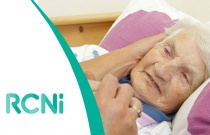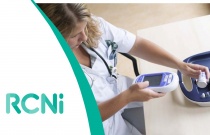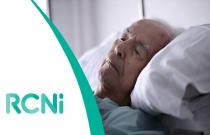Promoting effective treatment and education for children with eczema
Deryn Thompson
1.00 Hours
Patient and parent education for children with eczema should follow a consistent approach, guided by an established framework that combines aspects of nursing, education and cognitive psychology. Using the framework enables nurses to understand how to use and develop their skills when providing education about the management of....
Cultivating compassionate care for patients
Belinda Dewar
1.00 Hours
The term compassion is at the forefront of current healthcare policy, yet its meaning and how it can be realised in practice is far from clear. This learning module debates the meaning of compassion in the context of practice and argues that it essentially involves how people relate to each other. It highlights key processes to....
Promoting compassionate care through learning journeys
Bob Price
1.00 Hours
Nurses’ ability to provide compassionate care has come under increasing scrutiny in the light of reports criticising shortfalls in care. In response to this concern, three possible learning journeys that may encourage compassionate care are discussed. The learning journeys address issues relating to the conceptualisation of care....
Ankylosing spondylitis: patient diagnosis and management
Deborah Bond
This learning module provides an overview of ankylosing spondylitis, including signs and symptoms, diagnosis and management. The module focuses on the difficulties and delays associated with diagnosing this chronic inflammatory disease and developments in diagnostic criteria. Changes in the management of patients with the diseas....
Blood glucose monitoring and management in acute stroke care
Elizabeth Laird
Diabetes mellitus is a major risk factor for stroke. Concerns have been raised that adults with acute stroke, irrespective of whether or not they have a history of diabetes mellitus, are at increased risk of experiencing hyperglycaemia and hypoglycaemia. Hyperglycaemia is associated with severe stroke and poor clinical outcomes,....
Blood glucose monitoring in diabetes
Paula Mayo
While the prevalence of all types of chronic conditions is increasing, diabetes is one of the few long-term conditions that individuals can successfully manage and control on a day-to-day basis, providing that they have access to appropriate advice and support. Blood glucose monitoring and patient education are essential in diab....
Colorectal cancer and how to avoid it
Paul Beland
Colorectal cancer represents a significant threat to men and women and in Western societies its incidence is increasing. However, with care, adequate screening and early detection, it can be diagnosed and treated effectively. Although Western lifestyles, especially diet and sedentary living, are difficult to change, screening an....
Group B streptococcus in pregnancy: intrapartum care choices for women
Nina Whittle and Penny Champion
Group B streptococcus (GBS) colonisation can occur intermittently in a proportion of the population. This normally benign gram-positive bacterium has the potential to cause neonatal sepsis if the baby is exposed to it during vaginal delivery. Overwhelming sepsis in the neonate occurs infrequently, with most cases occurring in th....
A Program to Prevent Catheter-Associated UTI's
Keith D'Oria Editorial Director & Sanjay Saint, MD, MPH
0.50 Hours
A national prevention program appears to reduce urinary catheter use and catheter-associated urinary tract infection (UTI) rates in non-ICUs. The findings highlight the need to use both technical and cultural interventions to prevent catheter-associated UTIs.
Ethics for Substance Abuse Counselors
Industry Specialist
6.00 Hours
This course for Substance Abuse Counselors was compiled from the various codes of Ethics by both National (NAADAC) and large state board addiction treatment credentialing agencies. These codes cover the domains of most importance to Substance Abuse Counselors. *This course is not approved for NBCC renewal.
Critical Skills for the Nurse Educator
Theresa Puckett PhD, RN, CPNP, CNE
6.00 Hours
Maximize your use of available technology Develop challenging scenarios to facilitate learning Succeed with the resistant/disruptive learner New strategies to evaluate competencies in practice Cost-effective teaching tools BONUS: Checklists for lecture and lab/ clinical When I first started teaching, I spent hours preparing an a....
Challenging Geriatric Behaviors
STEVEN ATKINSON, PA-C, MS
6.00 Hours
This is the best seminar on challenging geriatric behaviors that you will ever complete - GUARANTEED! Join Steven Atkinson, PA-C, MS, nationally-known expert, author and speaker on geriatrics for a high-energy, dynamic seminar filled with interesting case studies, insightful discussions and interactive learning. Completion of th....
Perianesthesia Challenges
Delores “Dolly” Ireland, MSN, RN, CAPA, CPN
6.00 Hours
MALIGNANT HYPERTHERMIA Have you seen it? It’s still an emergency! Know what to do. ANESTHETICS & ADJUNCTS Ever wondered how or why they choose one over another? Find out the facts. LOCAL ANESTHETIC SYSTEM TOXICITY – LAST Do you have that Lipid infusion ready? Did you know why you should? Case studies revealed! NURSING MALPRACTIC....
Understanding Pathophysiology
Angelica Dizon BSN, RN, MD
6.00 Hours
Few things in health care have as direct an impact on patient care as pathophysiology - it’s the “whys” of what happens during disease and what we must do to treat it. By having a solid understanding of pathophysiology, you can provide an accurate, speedy assessment and treatment for your patient. This video teaches you a straig....
Remote Patient Monitoring: A Mississippi Success Story
Michael P. Adcock, FACHE and Tearsanee C. Davis, DNP, APRN-BC
1.00 Hours
In August 2014, the UMMC Center for Telehealth launched The Mississippi Diabetes Telehealth Network to pilot an advanced healthcare model on patients with uncontrolled diabetes living in the Mississippi Delta. Based on the findings of the Mississippi Diabetes Telehealth Network, UMMC has ramped up this program to include monitor....
Essentials of Hypertension - Webinar
Erin Vaughan
Understanding the essentials of hypertension and the key treatments and goals
Engaging Children and Young People
Margaret Hunter-Smallbone - Consultant Child and Adolescent Psychotherapist, Herts Partnership Found
0.50 Hours
This session presents a basic guide to engaging children and young people in a one to one interview. It describes how to prepare for the meeting and how to adapt the setting and your manner for different age and ethnic groups. It offers activities to help conversation flow. It gives examples of how to get the most out of your fi....
Prescribing in Pregnancy
Melissa Sayer
0.50 Hours
This session highlights the issues a GP must consider when prescribing to a pregnant woman. It outlines the general principles of safe prescribing.
Psychological Development
Russell Viner
0.50 Hours
This session will review the reciprocal impact of changes in psychological development in adolescence including cognitive, emotional and behavioural development. The session will also consider what impact these developmental changes have on self-management of long-term illness during adolescence.
Acute Wheeze in Children
Peter Young
0.50 Hours
This session considers the assessment and management of acute wheeze in children of different ages. This session was reviewed by Matthew Castleden and last updated on 27/03/13.
Allergies in Children
Malin Sullivan
This session uses case studies to describe the appropriate primary care management of allergies in children. It will outline the rise in allergy rates, the main allergic disorders and their appropriate treatment. This session was reviewed by Khyati Bakhai and last updated in October 2020.
ADHD
Mandy Rose
0.50 Hours
The session helps you to understand Attention Deficit Hyperactivity Disorder (ADHD). It covers the epidemiology, aetiology, core symptoms, associated conditions, differential diagnosis and management of the disorder. This session was reviewed by Sally Higginbottom and last updated in July 2014.
Premature Menopause
Nick Panay and Julie Ayres
0.50 Hours
This session will help learners to understand the definition and significance of a premature menopause and the key management issues involved in the healthcare of women experiencing it.
Assessing a Patient with an Electrolyte Imbalance
Stuart Smellie
0.50 Hours
This session explores the common and important causes of electrolyte imbalances commonly seen in primary care and presents a set of typical case studies of patients who have electrolyte disturbances. This session was reviewed by Emma Nash and last updated on 24/06/13.




















